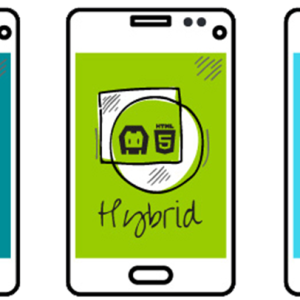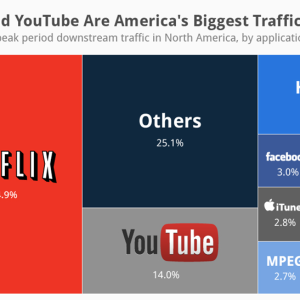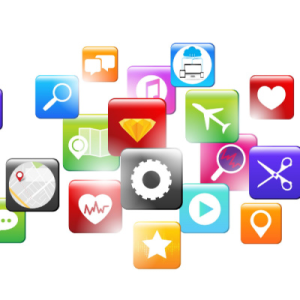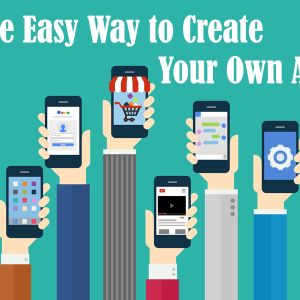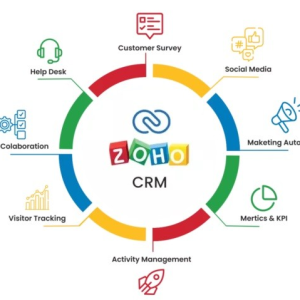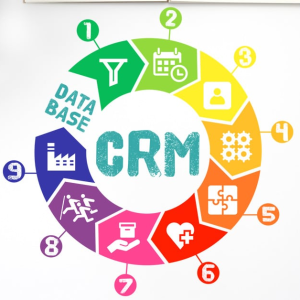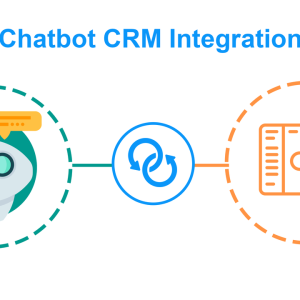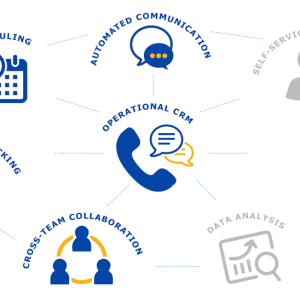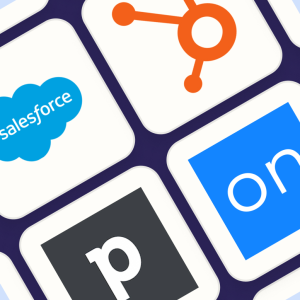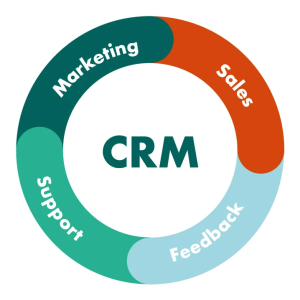Introduction
The revolutionary nature of businesses’ customer interactions has undergone a transformational shift in recent years. In an era where customers yearn for expedience and uninterrupted service, chatbot development has become an indispensable aspect of customer service. By the dawn of 2022, it is anticipated that chatbots will be entrusted with the lion’s share, precisely 95%, of all customer interactions.
Despite the increasing prevalence and usefulness of chatbots, a plethora of myths and misconceptions still loom large. It is essential to dispel these erroneous beliefs and set the facts straight about chatbots in 2022.
Myth 1: Chatbots don’t generate ROI

Fact: The palpable potential of chatbots to generate a consequential ROI for businesses is not to be underestimated. A comprehensive study conducted by Juniper Research projected that chatbots would yield businesses an astronomical savings of $8 billion annually, a stratospheric increase from a mere $20 million in 2017. This staggering rise in savings is primarily attributable to chatbots’ unparalleled ability to automate a gamut of tasks, including but not limited to customer service, lead generation, and appointment scheduling.
Myth 2: Chatbots are only used for customer service

Fact: It is a well-established fact that chatbots are unequivocally adept at providing unparalleled customer service. However, their multi-faceted utility is not restricted to merely customer service but also encompasses an extensive array of diversified purposes, including marketing, sales, and human resources, among others.
Take, for instance, the preeminent fast-food chain Burger King, which has devised a chatbot embedded in Facebook Messenger that eases the food ordering process for users. While it is true that chatbots can be used for several purposes, it remains axiomatic that customer service is the paramount sphere for businesses to commence their foray into the world of chatbots, given that customer service is an indispensable aspect of any business that is destined to thrive.
Myth 3: Chatbots can replace human employees

Fact: Chatbots are not meant to replace human employees. They are meant to complement and assist them. For example, chatbots can be used to handle the initial customer queries so that human agents can focus on more complex issues.
Yet, chatbots can make it easier for the human workforce by providing them with the information they need to do their jobs more efficiently.
To put it differently, chatbots can unequivocally optimize human employees’ productivity and efficacy in their jobs, a truism that is not to be overlooked. By seamlessly handling a plethora of monotonous and tedious tasks, chatbots can unleash human employees’ full potential and enable them to shift their focus towards more consequential tasks that require human expertise and finesse.
In essence, chatbots serve as an indispensible cog in the wheel of a thriving business that is poised to carve a niche for itself in the competitive landscape of today’s fast-paced world.
Myth 4: Chatbots only work with text

Fact: While most chatbots communicate via text, many use voice recognition. For example, Google Assistant and Amazon Alexa are two popular chatbots that use voice recognition.
Using speech recognition requires more processing power and is more expensive than text-based chatbots. However, voice recognition is becoming more affordable and accessible as technology advances.
Myth 5: All chatbots are the same
Fact: There are a variety of different types of chatbots with different features and capabilities. Some common types of chatbots include rule-based chatbots, AI chatbots, and natural language processing chatbots.
While ML and NLP chatbots can understand human emotions and provide more natural conversations, they are also more expensive and require more training.
Rule-based chatbots, on the other hand, are less expensive and easier to develop but can only handle simple tasks.
The type of chatbot you choose will depend on your business needs and budget.
Myth 6: Chatbots are only used by large businesses
Fact: Although it may seem like chatbots are exclusive to big corporations, small and medium-sized businesses can also harness the incredible benefits of this transformative technology. In fact, chatbots can be an invaluable tool for small businesses as they offer a cost-effective solution to enhancing customer service operations.
If you’re a small business owner seeking to implement a chatbot, the good news is that there are numerous affordable and user-friendly chatbot platforms available in the market. From the simplicity of Chatfuel to the versatility of Manychat and Motion.ai, these platforms offer an array of features to cater to your specific business requirements. With the right chatbot platform at your fingertips, your small business can achieve levels of customer satisfaction and engagement that were once unimaginable.
You can either start a hard-coded chatbot that is advanced with our “A Complete Guide To Hard-Coding A Chatbot Using Python And Deploying” Guide or contact our experts at 12 Channels to know more!
Myth 7: You need to be a tech expert to create a chatbot
Fact: Gone are the days when only tech-savvy experts could spearhead chatbot development initiatives. With the expansion of intuitive platforms, the realm of chatbot development is now accessible to even those who are not well-versed in coding. Take, for instance, Chatfuel, a veritable powerhouse that empowers you to create a seamless chatbot for Facebook Messenger with ease and finesse.
In addition, a treasure trove of online resources, such as tutorials and courses, is at your disposal to aid you in your quest to create a chatbot that meets your unique needs and requirements. So, if you’re contemplating delving into the world of chatbot development, fret not, for the tools and resources that can help you bring your vision to fruition are right at your fingertips.
Myth 8: Chatbots are expensive to create
Fact: It is a foregone conclusion that chatbots can be created free-of-cost using an assortment of cutting-edge platforms, such as Chatfuel, which, by virtue of their sheer simplicity and intuitiveness, facilitate the creation of chatbots without costing you an arm and a leg. However, in the event that you decide to commission a developer to create a custom chatbot that meets your unique needs and requirements, the cost will depend on an array of factors, including the features and functionality you seek to integrate into your chatbot.
That being said, chatbots are a quintessentially cost-effective method of ushering in an era of superior customer service and automating a scope of tedious and time-consuming tasks that are often associated with the sphere of customer service. In essence, chatbots are the way forward for businesses looking to make a mark in today’s fiercely competitive landscape.
Myth 9: Chatbots will destroy mobile apps

Fact: Chatbot development, with its myriad capabilities, shall not lay waste to the mobile app industry. Rather, it has the potential to enhance the latter by offering a plethora of complementary functionalities and an unmatched user experience. For instance, a multitude of chatbots these days offer an effortless way to order food or make hotel reservations sans any need to even launch the app.
As a result, businesses can now concentrate on crafting an immersive app experience without fretting over the arduous customer service aspect.
Myth 10: All chatbots are powered by Artificial Intelligence
Fact: It is a little-known fact that not all chatbots are powered by the intricate intricacies of Artificial Intelligence (AI). In point of fact, some chatbots, known as rule-based chatbots, are bereft of any AI capabilities whatsoever. That being said, the benefits of AI chatbots are manifold and, as such, they are becoming increasingly popular, particularly because they can simulate human-like conversations with a great degree of ease and finesse.
However, it is worth noting that with great power comes great responsibility, and with AI chatbots comes a higher price tag that can pinch your pocket. But, as the saying goes, “no pain, no gain”, and once you are ready to invest the time and resources into developing an advanced AI chatbot, the sky is the limit in terms of what you can achieve for your business. The future is yours for the taking!
Myth 11: Chatbots only work with pre-written scripts
Fact: Although some chatbots might be dependent on pre-written scripts, there are many out there that boast the ability to grasp natural language and respond with utmost precision. Take, for instance, the Google Assistant, which leverages the power of natural language processing to decipher user intent and offer an apt response.
NLP-powered chatbots have been gaining a lot of traction lately, mainly due to their ability to simulate a natural conversation. However, it’s worth noting that these chatbots are also more exorbitant to develop. Thus, it is prudent to first assess your business requirements and then earmark the budget accordingly.
Myth 12: Chatbots are only used for small talk
Fact: As much as chatbots are often associated with trivial chitchat, it’s worth acknowledging that they have made considerable inroads in serious business applications such as customer support or facilitating transactions. Take, for instance, the many chatbots that are now capable of aiding in hotel reservations or food ordering.
Given the varied use cases, the manner in which you choose to leverage chatbots is contingent on your specific business requisites. If a casual chatbot is all you seek, then sourcing one is a cinch. However, for more complex undertakings, the possibility of enlisting the services of a seasoned developer to concoct a customized chatbot cannot be entirely ruled out.
Myth 13: Chatbots are only used by businesses
Fact: Beyond being a go-to tool for businesses, chatbot development has now transcended the corporate realm and can be harnessed for personal use. Whether it’s sending a bespoke birthday greeting or procuring insightful weather-related data, the scope of chatbots has evolved dramatically. What’s more, these ubiquitous chatbots are not limited to text-based communication; an array of voice-based chatbots are now available, which can be seamlessly integrated with virtual assistants such as Amazon Alexa or Google Assistant.
Myth 14: Chatbots are only used online
Fact: Even though chatbots have gained immense popularity as an online tool, it’s worth noting that they can be effectively utilized offline as well. Take, for instance, the numerous businesses that have adopted chatbots on their websites and social media handles such as Facebook Messenger. Moreover, these chatbots can be deftly integrated into SMS and voice platforms, thus broadening their spectrum of application.
If you’re looking to deploy a chatbot for your business, it is imperative to first delineate which platform resonates with your brand’s ethos. After identifying the apt platform, finding a suitable chatbot that aligns with your requirements is a walk in the park.
Myth 15: Chatbots only work with web browsers
Fact: The integration of chatbots with mobile applications is a burgeoning trend in the realm of digital communication. For instance, one notable illustration is the Facebook Messenger chatbot, which facilitates the seamless booking of hotel rooms or the purchase of a myriad of products. However, in the event that you desire to craft a chatbot that integrates with your mobile app, you will indubitably require the services of a proficient developer who will tailor a bespoke chatbot to meet your specific needs.
It is important to bear in mind that this approach to chatbot development is typically accompanied by a higher financial outlay. Nevertheless, fret not, for there exist numerous agencies that offer comprehensive packages, including the likes of ours, which can provide valuable assistance in this regard.
Myth 16: Customers don’t want to talk to chatbots

Fact: As per a recent survey commissioned by Microsoft, a whopping 67% of customers expressed their willingness to engage with chatbots for customer support. Given that chatbots are always-on and can furnish rapid solutions, it’s not hard to see why a growing number of customers gravitate towards them for redressal of their grievances.
Undoubtedly, chatbots offer a convenient and speedy channel for obtaining answers to your queries. That said, it’s imperative to remember that not all chatbots are created equal and the quality of their development plays a crucial role. Therefore, it is crucial to invest time in selecting a chatbot that is custom-tailored to suit your specific business prerequisites.
Myth 17: Chatbots are dumb
Fact: Chatbots are not just automated responders; they are becoming progressively more intelligent with the incorporation of Artificial Intelligence (AI). For instance, Google Assistant’s implementation of natural language processing allows it to apprehend the user’s intention and retort accordingly.
Suppose you interrogate a chatbot a query that it doesn’t have an answer to. In that case, it won’t merely express its ignorance but will endeavor to unearth the answer for you – much akin to a human does. Besides, chatbots can also easily link you with human agents when you find yourself at a dead end.
Myth 18: Chatbots will take over our jobs
Fact: When it comes to the future of our work, it seems that many fear the hypothetical takeover of our job responsibilities by advanced chatbot systems. However, it’s important to recognize that chatbots, in fact, have the ability to act as a valuable asset in the workforce by aiding in customer support, sales and even completing tasks we may not have time to do ourselves.
A prime example of chatbot functionality in assisting with job responsibilities is their ability to aid in customer service and support, helping customers book hotel rooms or purchase products. Furthermore, chatbots have the capability to provide critical information, such as weather updates or restaurant suggestions, which may be outside of our personal time constraints.
Thus, it is not a matter of chatbots taking over our jobs, but rather the potential for these systems to enhance our productivity and ability to fulfill job duties with efficiency and precision.
Myth 19: Chatbots are only funny, they can’t be used for business
Fact: When it comes to the crucial role chatbots play in modern businesses, it’s difficult to ignore the staggering statistics that confirm their significance. According to a survey conducted by Drift in early 2019, an impressive 88% of respondents expressed the importance of chatbots in business operations. This overwhelming support for chatbots is understandable, given their ability to handle vast volumes of inquiries while saving companies valuable time and money.
It’s important to note that the personality of a chatbot can significantly impact its effectiveness and performance in specific business functions. For instance, a chatbot designed for customer support should emanate a welcoming and supportive demeanor, while a chatbot for marketing purposes should exude a more lighthearted and engaging persona. Ultimately, the decision of whether to imbue a chatbot with humor lies in the hands of its creators, with the potential to enhance its overall appeal and effectiveness.
Myth 20: You need a large team and a lot of money to develop a chatbot
Fact: The notion that developing a chatbot requires a hefty team and substantial financial investment is a common misconception in the world of modern technology. In fact, with the advent of chatbot platforms such as Chatfuel, creating a chatbot has never been more accessible or cost-effective.
Gone are the days of needing an extensive team of programmers and vast resources to create a chatbot. With just a computer and an internet connection, anyone can use Chatfuel to develop a chatbot completely free of charge, without requiring any coding expertise.
In a matter of mere minutes, you can craft a chatbot that can enhance your business operations, reduce costs, and significantly streamline customer interactions. With the power of chatbot technology at your fingertips, the potential for innovation and growth is limitless.
Of course, if you want to a more complex chatbot development architecture, you will need to hire a developer. But even then, the cost of developing a chatbot is much lower than the cost of hiring a human agent.
Myth 21: Chatbots can’t answer all my questions
Fact: Chatbot development is not perfect and they can’t answer all your questions. However, they are becoming more and more intelligent as they are powered by Artificial Intelligence. For example, Google Assistant is powered by natural language processing which allows it to understand the user’s intent and provide a relevant response.
60% of millennials say they have used chatbots. 70% of them say they had a positive experience.
(Forbes)
Myth 22: I don’t need a chatbot
Fact: The need for a chatbot may not be readily apparent at present, however, it is entirely plausible that you may require one in the future. Imagine a scenario where you yearn to make a hotel reservation or purchase a product with ease – a chatbot would undoubtedly prove invaluable in such a context. As such, it would behoove you to be well-prepared for such eventualities. After all, the ability to leverage a chatbot’s capabilities in a timely manner can make all the difference.
Bonus tip:
If the prospect of creating a chatbot has piqued your interest, then you would be remiss not to acquaint yourself with the wonders of Chatfuel – a platform that confers the ability to fashion a rudimentary chatbot, sans cost. However, should you find yourself in need of a more sophisticated chatbot that is tailored to your unique needs, then fear not! 12 Channels is at your service, providing unparalleled chatbot development solutions that are both budget-friendly and exceptionally effective.
Our team of skilled chatbot developers are more than capable of bringing your vision to life, ensuring that the resultant chatbot will meet and exceed your expectations. So why settle for anything less when you can have the best? Choose 12 Channels for all your chatbot development needs and experience the difference firsthand!
Conclusion
Before delving into the world of chatbot development, it’s crucial to gain an understanding of the numerous myths and facts surrounding this exciting technology. By 2022, chatbots are predicted to revolutionize the customer service industry by leveraging the power of Artificial Intelligence to provide customers with quick and efficient solutions to their inquiries, from product information to purchase assistance. Nonetheless, despite their immense potential, there are still several myths and misconceptions about chatbots that need to be debunked.
Armed with a comprehensive understanding of the different myths and facts about chatbots, you can make an informed decision about whether they’re the right fit for your business. If you’re looking for assistance with chatbot development, our team at 12 Channels is ready and eager to help. With our cost-effective chatbot development services and expertise in the field of artificial intelligence, your business can soar to new heights and reach unprecedented levels of customer engagement and satisfaction.



